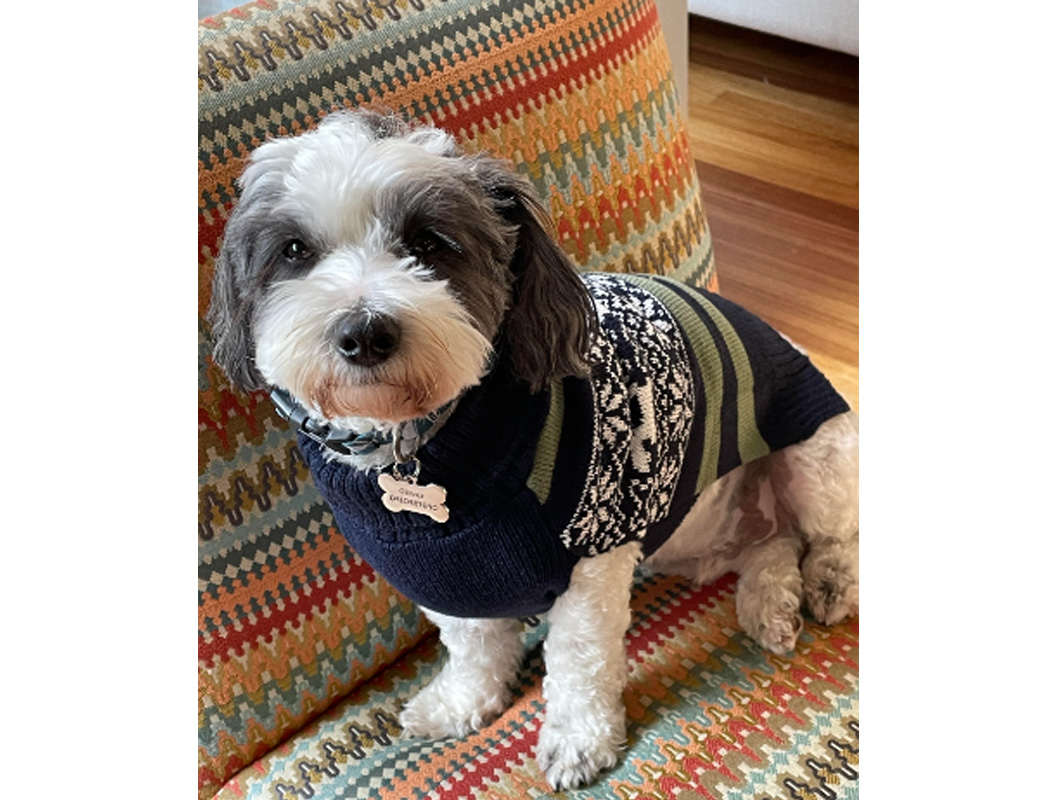By Fiona Bridger, Achieve Australia Researcher and Writer, June 23, 2023
The companionship of animals has been cherished for centuries and dogs have proven to be especially beneficial for individuals with disabilities.
I know the joy of growing up with dogs as valued members of my family who offered unconditional love and support. Each dog provided me with a profound sense of companionship, diminishing feelings of isolation. During moments when a human presence was lacking, these remarkable creatures remained by my side, offering unwavering support.
The remarkable aspect of animals is their ability to perceive beyond my disability, connecting with the depths of my heart, understanding my emotions, and consistently displaying unconditional love. When I was a teenager and things got hard, my dog was my support and my friend. My loving canine made me feel less lonely in what seemed to be a strange world.
Now, in my adult years, my loyal companion Oliver is my sanctuary during moments of stress, providing comfort and alleviating my worries. The simple act of stroking his soft, fluffy fur is enough to instantly uplift my spirits. He is a Moodle (Maltese cross poodle) with an incredible personality. His ability to bring laughter to my mother and me is a constant source of joy in our lives.
For those facing challenges in getting out and engaging with the world, dogs are a remarkable source of motivation, encouraging daily physical activity. Embracing this opportunity not only benefits your own well-being but also deepens the bond with your furry companion, who will undoubtedly cherish the shared moments.
Plus, through socialising with fellow dog owners, you might discover new friendships and connections to expand your social circle.
Professional assistance dogs
Certain dog breeds such as Labradors and Golden Retrievers possess remarkable trainability making them ideal support dogs for people with disability.
Well known non-for-profits Assistance Dogs Australia and Guide Dogs NSW tell the stories of dogs assisting people with a great range of disability. Dogs can be taught to open and close doors, switch off lights, guide individuals with disabilities safely across roads, carrying objects, or alerting others when attention is required.
Training of a puppy can take up to 2 years and cost tens of thousands of dollars. While the process of obtaining an assistance dog may be lengthy due to the rigorous training involved, the rewards are truly worthwhile. Having an assistance dog fosters independence and confidence, enabling people to actively participate in various aspects of personal and public life.
The National Disability Insurance Scheme (NDIS) does recognise dogs as a reasonable and necessary support in some circumstances. You can read more on this page of the NDIS website.
Dogs have a long history supporting people who are vision impaired, or blind, engage with the world. Dogs are also well known for playing a pivotal role in establishing a structured daily routine to benefit people on the Autism Spectrum who thrive with consistency. Engaging in manageable tasks to care for an animal companion such as feeding, walking, and grooming can benefit those with depression and mood disorders. These small yet meaningful responsibilities also contribute to a sense of purpose and well-being for people helping to foster positive outcomes.
Where owning or caring for a non-professional dog might pose challenges for some people due to the level of disability, a therapy dog can be considered. Therapy dogs are primarily trained to offer companionship and emotional support. Depending on your preferences and requirements, these dogs can either become a cherished part of your family or provide short-term support tailored to your specific needs.
Therapy dogs come in all shapes and sizes. As well as Labradors and Golden Retrievers, German Shepherds, French Bulldogs, Bichon Frise, Yorkshire Terriers, Pomeranians, and Beagles and many more have served as support dogs. And Moodles of course!
My fabulous friend Oliver
Let us return to the center of my life, Oliver. He holds an unparalleled place in my heart. My love for him knows no bounds. His awareness of his undeniable cuteness occasionally becomes a charming tool he deploys to his advantage. Oliver is not only my loyal companion but also my best friend.
Despite his inability to speak, he possesses an exceptional ability to listen attentively. I firmly believe that Oliver entered my life with a purpose—to guide me away from negative thoughts and illuminate the path towards a more positive outlook.
One of my greatest joys is taking Oliver for walks in my power wheelchair. We both relish the invigorating fresh air and exploring the neighbourhood together.
Oliver’s presence never fails to bring a smile to the faces of my support workers, who have developed a fondness for him. To my mother, Oliver is like a beloved grandson – she adores him. He has seamlessly become a cherished part of our family. I can't imagine life without him.
My hope is that this blog may inspire you to consider adding a new furry member to your own family, so you can experience the profound love and companionship I am fortunate to have. Trust me, you will not regret it. Perhaps we'll even cross paths at a dog park someday!
Explore more topics
- Accessibility
- inclusion
- Achieve Australia
- disability
- belonging
- Community
- Employment
- The Sewing Basket
- Advocacy
- disability employment
- Accessible
- My Life My Say
- Celebrating people we support
- NDIS
- 2022
- Meet our Achievers
- blog
- people with disability
- travel
- women with disability
- Art
- Australia
- COVID-19
- Disability services
- Good nutrition
- Guildford
- Health tips
- Mental wellbeing
- NDS
- Sharing milestones
- Sydney
- achievable
- assistance dogs
- depression
- disability communications
- disability inclusion
- election
- employee of the year
- intellectual disability
- motherhood
- pregnancy
- social inclusion
- support workers

